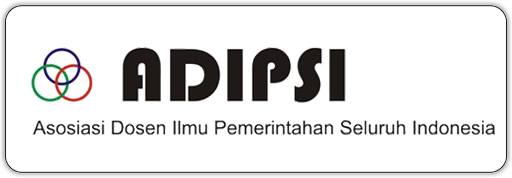Collaboration in Handling COVID-19 Turbulence from a Threefold Perspective: A Literature Review
DOI:
https://doi.org/10.31629/kemudi.v7i1.4617Keywords:
Collaborative Governance, Threefold Perspective, COVID-19Abstract
The crisis due to COVID-19 can be called turbulence and its handling requires cross-border collaboration because complex problems tend to be overcome through multi-actor collaboration in networks and relationships to obtain common solutions. Collaborative governance is present as an instrument for implementing policies for handling COVID-19 to address the government's limitations in material, technical, and resource matters. Using a qualitative approach, this study aims to identify the implementation of collaborative governance in handling COVID-19 by countries in the world in a threefold perspective. This perspective is a new approach in collaborative governance that has the same basis as the Collaborative Governance Regime theory, but tends to narrow the thinking to three layers that support each other in the form of folds: values ??(individuals and policies), decision structures (action situations and sub-systems). policy), and context (external variables, stable parameters, and external events). Public values ??grow from the social context and are articulated in collaborative governance platforms and are important for the government to work on to improve community compliance with government programs. The turbulent COVID-19 situation creates space and decision-making. Each country has different choices, backgrounds, and policies but still bases the process of making and implementing policies on collaborative governance according to their respective preferences. In the folds of policy style and administrative culture, each country has its own dynamics. Countries with sufficient experience in handling outbreaks are able to make administrative adjustments more quickly, which helps speed up the response to the pandemic
Downloads
References
Ansell, Christopher, Sørensen, E., & Torfing, J. (2021). The COVID-19 pandemic as a game changer for public administration and leadership? The need for robust governance responses to turbulent problems. Public Management Review, 23(7), 949–960. https://doi.org/10.1080/14719037.2020.1820272
Aptery, A. P. (2019). Konstruksi Collaborative Governance Dalam Pencegahan Narkoba Di Provinsi DKI Jakarta. Universitas Indonesia.
Belitski, M., Guenther, C., Kritikos, A. S., & Thurik, R. (2022). Economic effects of the COVID-19 pandemic on entrepreneurship and small businesses. Small Business Economics, 58(2), 593–609. https://doi.org/10.1007/s11187-021-00544-y
Chiang, C. H., Chiang, C. H., & Chiang, C. H. (2021). Maintaining mask stockpiles in the COVID-19 pandemic: Taiwan as a learning model. Infection Control and Hospital Epidemiology, 42(2), 244–245. https://doi.org/10.1017/ice.2020.226
Choi, Y. J. (2020). The Power of Collaborative Governance: The Case of South Korea Responding to COVID-19 Pandemic. World Medical and Health Policy, 12(4), 430–442. https://doi.org/10.1002/wmh3.376
Dharma, A. A. S., & Kasim, A. (2021). Infodemi Covid-19 dalam Perspektif Open Government: Sebuah Tinjauan Literatur. JIIP: Jurnal Ilmiah Ilmu Pemerintahan, 6(1), 105–125. https://doi.org/10.14710/jiip.v6i1.10372
Emerson, K., & Nabatchi, T. (2015). Collaborative Governance Regimes. Georgetown University Press.
Hiscott, J., Alexandridi, M., Muscolini, M., Tassone, E., Palermo, E., Soultsioti, M., & Zevini, A. (2020). The global impact of the coronavirus pandemic. Cytokine and Growth Factor Reviews, 53(May), 1–9. https://doi.org/10.1016/j.cytogfr.2020.05.010
Huang, I. Y. F. (2020). Fighting COVID-19 through Government Initiatives and Collaborative Governance: The Taiwan Experience. Public Administration Review, 80(4), 665–670. https://doi.org/10.1111/puar.13239
Khasanah, R. P., & Purwaningsih, T. (2021). Analisis Collaborative Governance Dalam Implementasi Kebijakan Psbb Pada Penanganan Pandemi Covid-19 Di Dki Jakarta Tahun 2020. Jurnal Pemerintahan Dan Kebijakan (JPK), 2(3), 155–169. https://doi.org/10.18196/jpk.v2i3.12792
Klimovsky, D., Maly, I., & Nemec, J. (2021). Collaborative Governance Challenges of the COVID-19 Pandemics: Czech Republic and Slovakia. Central European Public Administration Review, 19(1), 85–106. https://doi.org/10.17573/cepar.2021.1.04
Lahat, L., & Sher-Hadar, N. (2021). A Threefold Perspective: Conditions for Collaborative Governance. In L. Lahat, N. Sher-Hadar, & I. Galnoor (Eds.), Collaborative Governance: Theory and Lessons from Israel. Palgrave Macmillan. http://link.springer.com/10.1007/978-3-030-45807-2
Li, B., Qian, J., Xu, J., & Li, Y. (2022). Collaborative governance in emergencies: Community food supply in COVID-19 in Wuhan, China. Urban Governance, March. https://doi.org/10.1016/j.ugj.2022.03.002
Meynhardt, T. (2009). Public value inside: What is public value creation? International Journal of Public Administration, 32(3–4), 192–219. https://doi.org/10.1080/01900690902732632
Modjo, M. I. (2020). Memetakan Jalan Penguatan Ekonomi Pasca Pandemi. Jurnal Perencanaan Pembangunan: The Indonesian Journal of Development Planning, IV(2), 103–116. https://doi.org/10.36574/jpp.v4i2.117
Molinengo, G. (2022). Flows of power: an analytical framework for the study of collaboration. Critical Policy Studies, 00(00), 1–22. https://doi.org/10.1080/19460171.2022.2037005
O’Sullivan, E., Rassel, G., Berner, M., & DeVance Taliaferro, J. (2016). Research Methods for Public Administrators: Sixth Edition. In Research Methods for Public Administrators. Taylor and Francis. https://doi.org/10.4324/9781315563534
Rasminto, Rasyid, A., Adiputra, A., Amin, & Ain, M. (2022). Analisis Dampak Sosial-Ekonomi Akibat Pembatasan Sosial Berskala Besar (PSBB) Dalam Menghadapi Pandemi COVID-19 di Provinsi DKI Jakarta. JGG-Jurnal Green Growth Dan Manajemen Lingkungan, 11(1), 27–34.
Saputra, H., & Salma, N. (2020). Dampak PSBB dan PSBB Transisi di DKI Jakarta dalam Pengendalian COVID-19. Media Kesehatan Masyarakat Indonesia, 16(3), 282–292. https://doi.org/10.30597/mkmi.v16i3.11042
Siregar, L. Y., & Febrina, R. (2022). Efektivitas Kebijakan Work From Home pada Masa Pandemi Covid- 19 bagi Aparatur Sipil Negeri di Badan Perencanaan Pembangunan Derah Kota Pekanbaru Tahun 2021. Kemudi: Jurnal Ilmu Pemerintahan, 6(2), 161–174. https://doi.org/10.31629/kemudi._v6i02.4009
Tracy, S. J. (2020). Qualitative Research Methods: Collecting Evidence, Crafting Analysis, Communicating Impact. John WIley and Sons, Inc.
Voorberg, W., Bekkers, V., Flemig, S., Timeus, K., Tõnurist, P., & Tummers, L. (2017). Does co-creation impact public service delivery? The importance of state and governance traditions. Public Money and Management, 37(5), 365–372. https://doi.org/10.1080/09540962.2017.1328798













